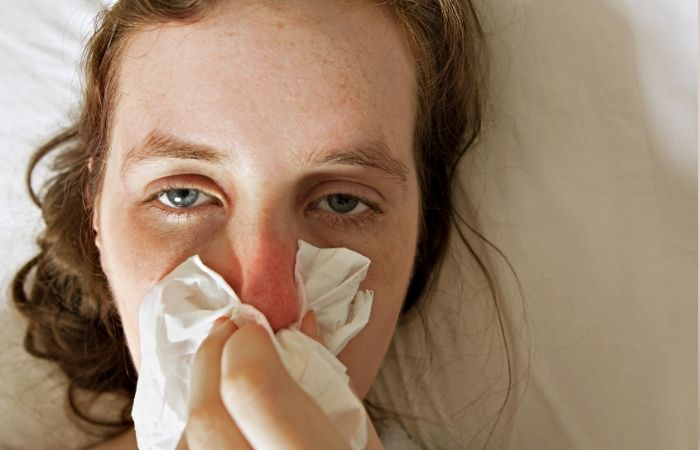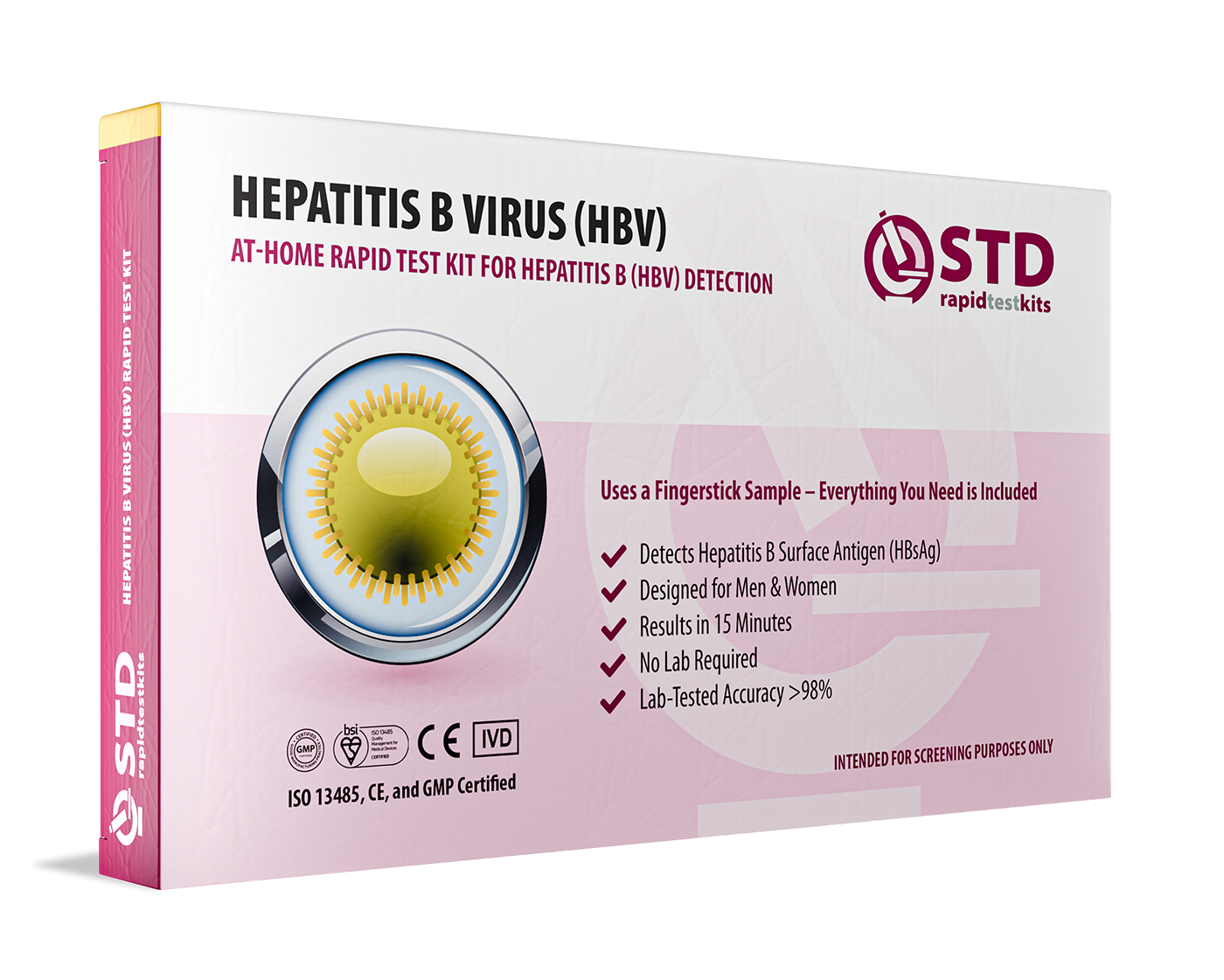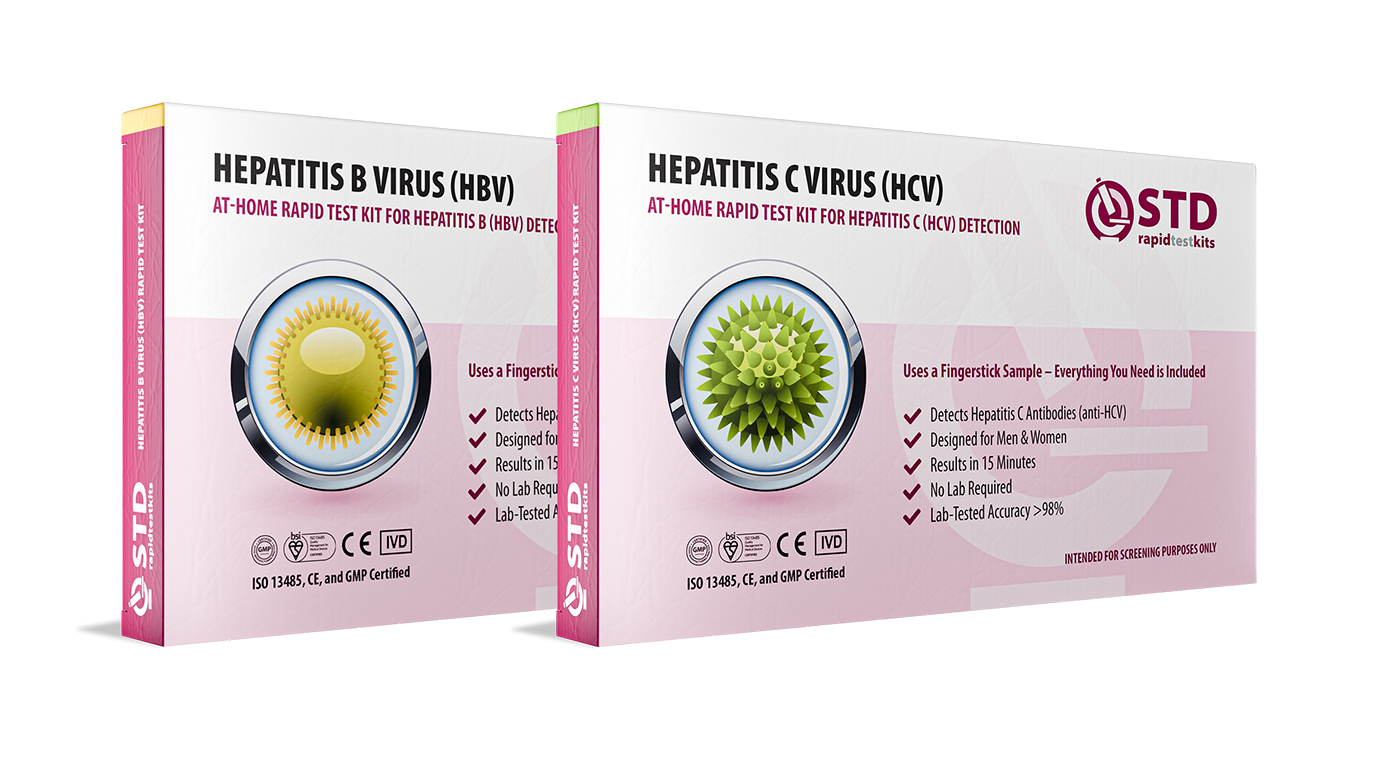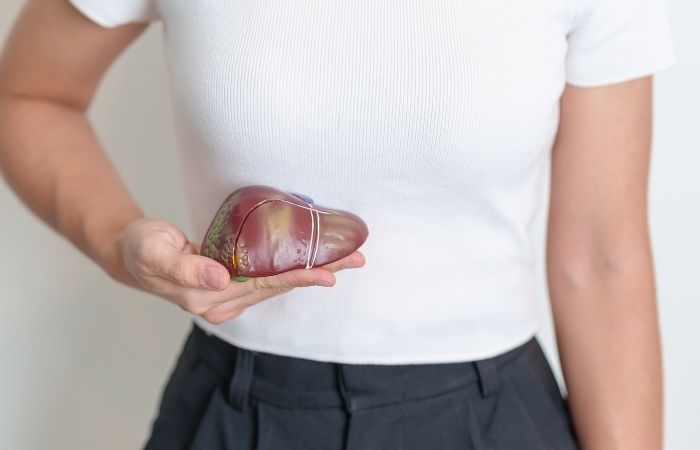We’ve all done it. You wake up exhausted, your muscles ache, and there’s a strange queasiness in your gut. You figure it’s the flu, maybe that bug everyone’s been passing around at work. So you pop some ibuprofen, cancel plans, and wait it out. But what if it’s not the flu? What if it’s something far less obvious and far more dangerous, like acute hepatitis B?
Here’s the scary-but-manageable truth: early Hepatitis B symptoms look a lot like the flu. We’re talking fatigue, fever, muscle soreness, loss of appetite, and even nausea and vomiting. Most people chalk it up to a seasonal virus or burnout. And while that makes emotional sense, it’s also how hepatitis B slips under the radar until things get serious.
This is one reason Hepatitis B is called a “silent” epidemic. Not because it’s rare, it isn’t, but because it hides behind symptoms we’ve learned to ignore. According to the CDC, an estimated 14,000 new acute hepatitis B cases occur in the U.S. annually. Globally, over 296 million people live with chronic Hepatitis B. Many got it when they thought they just had the flu.

People are also looking for: Are cold sores and herpes the same thing?
When the Flu Isn’t Just the Flu
Let’s break it down. Typical flu symptoms include:
- Fever and chills
- Muscle or body aches
- Fatigue and weakness
- Runny nose or sore throat
- Headache
Acute Hepatitis B shares many of those symptoms, but adds a few that are easy to miss (or ignore):
- Dark urine that looks like cola or tea
- Itchy skin without a visible rash
- Loss of appetite lasting more than 3 days
- Stomach pain, especially in the upper right side
- Yellowing of eyes or skin (jaundice)
Even medical professionals sometimes misdiagnose acute Hep B as flu, stomach virus, or even stress-related illness. That’s not incompetence, it’s symptom overlap. But it’s why getting the right test matters so much.
A Quick History of Hepatitis B and Its Reputation
Hepatitis B has been around since the 5th century BCE, with descriptions found in ancient Chinese and Greek medical texts. For centuries, it was called “serum hepatitis” because it spread via blood transfusions. In the 1970s, a major breakthrough came when scientists discovered the hepatitis B surface antigen (HBsAg), allowing for better diagnosis and vaccine development.
Still, stigma stuck. Because Hepatitis B spreads through blood, semen, and other bodily fluids, it’s long been associated with “risky” behavior, which makes people less likely to ask questions or seek care early. In reality, many people contract it from everyday activities: sharing razors, getting tattoos, or being born to an infected parent.
Misconceptions still run deep:
- “Only IV drug users get Hep B.” False.
- “It’s an STD, so I’m safe if I’m in a monogamous relationship.” Not always.
- “If I don’t have jaundice, it’s not serious.” Also false.
The truth? You can have acute hepatitis B with zero visible symptoms. Or you might just feel like you have a nasty, stubborn flu. That’s why many infections are missed or diagnosed late, especially if your doctor isn’t thinking to test your liver function.
So, if you’ve had unprotected sex in the last few months, a piercing, shared needles, or even close contact with someone who’s sick, and now you’re down with what you think is the flu, it’s worth asking yourself: Could this be something else?
Check Your STD Status in Minutes
Test at Home with RemediumHepatitis B Test Kit

 For Men & Women
For Men & Women Results in Minutes
Results in Minutes No Lab Needed
No Lab Needed Private & Discreet
Private & DiscreetOrder Now $33.99 $49.00
The Risks of Misdiagnosing Hepatitis B as the Flu
Here’s the problem with mistaking acute Hepatitis B for the flu: the longer it goes unnoticed, the more damage it can do to your liver, and the higher your risk of becoming a chronic carrier. Most healthy adults who catch Hepatitis B clear the virus within six months. But about 1 in 20 adults develop a chronic infection. If that happens, you’re at lifelong risk for cirrhosis, liver failure, or even liver cancer.
The real kicker? You can become a carrier and spread the virus to others without ever realizing you were sick.
According to the CDC’s 2024 Surveillance Report:
- Approximately 2.4 million people in the U.S. live with chronic Hepatitis B.
- 67% of those are unaware they’re infected.
- Acute infections rose by 12% year-over-year, likely due to reduced vaccination and increased unprotected sex post-pandemic.
If you’re reading this with flu-like symptoms that feel off, too long, too intense, or just strange, this might be the moment to reconsider your assumptions. Hepatitis B doesn’t always shout. Sometimes it whispers, quietly wearing down your body while you assume it’s nothing.
Symptoms Doctors Often Overlook
Many urgent care providers and general practitioners see dozens of flu complaints a week. Most are just that, the flu. But when Hepatitis B shows up looking the same, it’s easy to miss.
Here’s what they may not always ask about, but you should track:
- Itchy skin with no rash
- Stomach pain that doesn’t improve with food or rest
- Fatigue that lingers even after the fever fades
- Dark urine (amber or tea-colored)
- Episodes of dizziness or lightheadedness
“In patients under 40 with recent sexual exposure and flu-like symptoms, Hepatitis B should always be on the differential diagnosis list,”
says Dr. Lena Qureshi, an infectious disease specialist based in Chicago.
“Unfortunately, many people aren’t tested until they’ve already passed the virus to someone else, or started showing signs of liver dysfunction.”
How Long Can Hepatitis B Go Undetected?
The incubation period for Hepatitis B is long, anywhere from 60 to 150 days. That’s months of walking around with a virus, unaware that your liver is under siege.
Even if symptoms start, they’re often mistaken for:
- Seasonal flu (aches, chills, fatigue)
- Food poisoning (nausea, vomiting)
- Stress-related fatigue or burnout
- Hangover symptoms in people who drink regularly
This misdiagnosis spiral delays treatment, contact tracing, and your ability to protect partners. And because Hepatitis B is extremely contagious, that delay can ripple outward fast.

People are also looking for: Can a blood test detect herpes without symptoms?
Transmission: It’s Not Just About Sex
Most people know Hepatitis B can be sexually transmitted, but not everyone realizes just how versatile this virus is. It spreads through any contact with infected blood, semen, or other bodily fluids.
That means risk can also come from:
- Sharing razors or toothbrushes
- Getting a tattoo or piercing with unsterilized equipment
- Living in close quarters with someone who has chronic Hep B
- Medical procedures in countries with low sterilization standards
And here’s the part most people don’t hear often enough: You can get Hepatitis B from someone who looks completely healthy. The virus is often most contagious just before symptoms appear, or when they never do.
Home Testing: Why It Changes the Game
Getting tested doesn’t have to mean going to a clinic, explaining your sex life to a stranger, or waiting days for results. You can test for Hepatitis B at home, discreetly and accurately.
The Hepatitis B Home Test Kit offers fast results from the privacy of your own bathroom. If you’re worried about other infections too, the 6-in-1 STD At-Home Rapid Test Kit covers the top infections people mistake for flu-like bugs.
Don’t wait and wonder. If you’re feeling weirdly sick and you know your body, it’s worth getting answers now.
“I Thought I Just Had a Bad Flu”: Stories from Real People
Maria, 31, thought she had a flu that just wouldn’t quit. “I had body aches, no appetite, and this deep fatigue I couldn’t shake,” she said.
“I was sleeping 14 hours a day. I figured it was post-viral or maybe burnout from work.”
After three weeks of strange symptoms and a bout of dark urine, Maria took a home test and discovered she had acute Hepatitis B. Her partner tested positive too.
“We’d both been vaccinated as teens but never got the boosters. I never would’ve guessed it was something like Hep B.”
She’s not alone. Many people with Hepatitis B don’t show symptoms, or write them off as stress, food sensitivity, or something minor. That’s why it spreads so quietly. And why so many people are shocked to discover they’ve had it for weeks or even months.
Another anonymous case: Tyrell, 26, got tested after a partner messaged him about a recent STD scare.
"I felt fine except for being super tired and weirdly bloated. But I did the test out of respect. It came back positive. I’d had the symptoms for over a month but just thought I was overtraining at the gym.”
These stories aren’t here to scare you. They’re here to show you: you’re not overreacting if something feels off. You’re being smart.
Check Your STD Status in Minutes
Test at Home with RemediumHepatitis B & Hepatitis C Test Kit

 For Men & Women
For Men & Women Results in Minutes
Results in Minutes No Lab Needed
No Lab Needed Private & Discreet
Private & DiscreetOrder Now $49.00 $98.00
For all 2 tests
How to Tell If You Should Get Tested
Wondering if you should test for Hepatitis B? Here are some signs it’s time to check:
- You’ve had flu symptoms lasting more than 7 days
- You’re experiencing dark urine, pale stool, or itchy skin
- You feel exhausted despite resting
- You’ve had unprotected sex in the last few months
- You’ve shared needles, razors, or personal items
- You got a tattoo or piercing without knowing the sterilization practices
- You were born in or traveled to a country with high Hepatitis B prevalence
If you checked even one of these boxes, a simple at-home test could give you answers and peace of mind.
What to Do If You Test Positive
If you get a positive result for Hepatitis B, don’t panic. Most adults clear the virus on their own within six months. Here’s what happens next:
- See a healthcare provider for blood tests to confirm the infection stage
- Monitor liver function regularly over the coming months
- Notify recent partners so they can test and protect themselves
- Avoid alcohol and other liver stressors while healing
In some cases, antiviral medication is recommended, but many people recover fully with monitoring and lifestyle support. Your doctor will guide you based on your specific lab results.
And here’s the part that matters most: You are not dirty, reckless, or irresponsible. You’re human. You got sick. And now, you’re doing the right thing by facing it head-on.
Normalize the Test. Save the Liver.
There’s no shame in testing. But there is power.
Testing early means you can avoid complications, protect your partners, and catch an infection that otherwise hides in plain sight. You don’t need to “wait and see.” You can know. Right now. From home.
Get the Hepatitis B Home Test or use the Complete STD Home Test Kit Package for broader answers. Either way, you’re putting your health in your own hands, and that’s powerful.

People are also looking for: Can STD symptoms come and go?
Future Trends: Testing, Tech, and Awareness
In the next few years, expect Hepatitis B testing to become faster, cheaper, and more accessible. At-home testing is already disrupting how people approach sexual health, giving them privacy and control without the judgment or delay of in-person care.
Public health initiatives are also shifting. Organizations like the Hepatitis B Foundation and WHO are pushing for broader vaccine outreach, especially for adults who missed childhood doses and communities with high transmission rates.
We’re also seeing a rise in combo testing, kits that check for multiple STDs and hepatitis viruses at once. This mirrors real-life concerns: most people don’t know what they have, they just know something’s wrong. And now, they have tools to find out without stigma.
FAQs
1. Can Hepatitis B really feel like the flu?
Yes. Early Hepatitis B often includes fever, body aches, chills, nausea, and fatigue, classic flu symptoms. That’s why it’s easy to miss.
2. How long does acute Hepatitis B last?
Symptoms can last anywhere from a few weeks to several months. Most healthy adults recover within six months.
3. What are the earliest signs that it’s not the flu?
Watch for dark urine, itchy skin, jaundice, and persistent nausea. These suggest liver involvement, not a basic viral flu.
4. Is there a quick way to tell the difference?
Time and specificity. Flu usually improves in 3–7 days. Hepatitis B symptoms linger and feel more targeted (urine changes, appetite loss, etc.).
5. Can I get Hepatitis B without sex or drugs?
Yes. It can spread through shared razors, toothbrushes, unsterile tattoos, or birth-related exposure.
6. What if I was vaccinated as a child?
The vaccine is highly effective, but protection can wane over decades. Some adults need boosters, especially if they’re at risk.
7. Can you have Hepatitis B and not know it?
Absolutely. Many people are asymptomatic or write off symptoms as “just stress” or “bad flu.”
8. How accurate are home tests for Hepatitis B?
When purchased from a certified source like STD Rapid Test Kits, home tests are over 95% accurate and lab-grade.
9. What if my test is positive?
See a healthcare provider. Most adults recover fully, but monitoring is key. You may also need to inform recent partners.
10. Can I get retested later to confirm recovery?
Yes. Follow-up testing can confirm whether your body cleared the infection or if chronic Hepatitis B developed.
You Deserve Certainty, Not Guesswork
Here’s the bottom line: You don’t need to be scared. You just need to be smart. If you’re sick and it doesn’t feel like a “normal flu”, trust that instinct. You don’t need to earn your worry. You don’t need to justify testing. You just need to act.
The body tells the truth even when the symptoms lie. Acute Hepatitis B is real, common, and 100% manageable, especially when you catch it early.
Get tested now. Don’t wait for your symptoms to get “bad enough.” They already matter.
You are not alone. You are not gross. You are not overreacting.
You’re just doing the responsible thing, and that makes you powerful.
Sources
1- CDC – Clinical Signs & Symptoms of Acute Hepatitis B
2. Mayo Clinic – Hepatitis B Symptoms & Causes (Timing & Duration)
3. NCBI – Hepatitis B and Other Viral Diseases (Description of acute HBV presentation)
4. Merck Manuals – Overview of Acute Viral Hepatitis (Prodrome & liver-specific features)
5. MyHealth Alberta – How Acute Hepatitis B Can Feel Just Like the Flu










